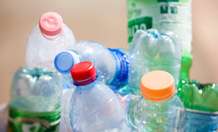Researchers work with Coca-Cola to transform home recycling

Researchers from the University of Exeter are working with Coca-Cola Enterprises (CCE) on a ground-breaking study with 20 households in Great Britain and France to observe at-home recycling behaviors.
The study will seek to understand why recycling rates are so low, despite people expressing strong beliefs towards environmental behaviors.
Research shows that 75% of French and 76% of British consumers claim to 'always' recycle plastic bottles at home, and over 63% across both countries view recycling as 'a moral and environmental duty'. However, actual at-home recycling rates do not reflect these intentions with only half of all plastic bottles currently collected for recycling, revealing a significant value/action gap. Improving these recycling rates will enable manufacturers to boost sources of locally-available high-quality recycled PET and reduce their resource footprint.
"Our research team has been working on pro-environmental behavior change for many years, and we are very familiar with the 'value/action gap,'" said Dr. Stewart Barr from the College of Life and Environmental Sciences at the University of Exeter. "People say they want to be environmentally friendly and want to recycle, but in many cases, they don't. This study will explore the intricacies of household decisions on recycling and identify actions that could drive long-term consumer behavior change."
Supported by CCE's Recycle for the Future campaign, the researchers will observe ten households in both Great Britain and France over a six-month period to explore the dynamics that drive waste disposal and recycling in the home. Together with the participants, they will also explore solutions that could influence behaviors and eventually improve at-home recycling rates. Results will be shared with local authorities, NGOs and other businesses who are trying to influence environmental behaviours. CCE will collaboratively develop solutions with the wider industry and sustainability community to help improve recycling rates.
The study will explore questions such as:
- Who are the environmental champions in the home? Preliminary quantitative research reveals a generation gap, with only 54% of 18-24 year olds across both countries saying they always recycle plastic bottles, compared to almost 90% of over-55s.
- What is the impact of on-pack information? 37% of people in Great Britain say they would like to see more information on packaging about what can be recycled, yet 60% state they never check whether a pack is recyclable when they go shopping.
- Is a lack of understanding in the infrastructure partly responsible for low recycling rates? Over 30% of people in both countries believe collected materials are not recycled.
CCE has identified that packaging accounts for almost half of its carbon footprint. As part of its commitment to reduce the carbon footprint of its products by a third by 2020, the company has committed to recycle more packaging than it uses.
"Our commitment to reduce the carbon footprint of the drink in your hand by a third by 2020 means we must inspire change in consumer recycling behavior," said Joe Franses, director of Corporate Responsibility and Sustainability. "Recycle for the Future will unlock the dynamics of household recycling behaviors and allow us to explore collaborative solutions to this challenge with the wider sustainability community. We believe this project will provide real value for other businesses, NGOs and public authorities."
The study follows significant investment from CCE in two strategic infrastructure partnerships to increase plastics reprocessing capacity in Great Britain and France. The findings will be announced at CCE's Sustainability Innovation Summit in October 2013.
To follow the study or find out more, please visit: www.cokecce.com.
Provided by University of Exeter



















